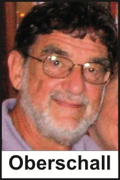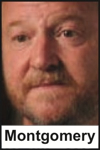Rascals case in brief
In the beginning, in 1989, more than 90 children at the Little Rascals Day Care Center in Edenton, North Carolina, accused a total of 20 adults with 429 instances of sexual abuse over a three-year period. It may have all begun with one parent’s complaint about punishment given her child.
Among the alleged perpetrators: the sheriff and mayor. But prosecutors would charge only Robin Byrum, Darlene Harris, Elizabeth “Betsy” Kelly, Robert “Bob” Kelly, Willard Scott Privott, Shelley Stone and Dawn Wilson – the Edenton 7.
Along with sodomy and beatings, allegations included a baby killed with a handgun, a child being hung upside down from a tree and being set on fire and countless other fantastic incidents involving spaceships, hot air balloons, pirate ships and trained sharks.
By the time prosecutors dropped the last charges in 1997, Little Rascals had become North Carolina’s longest and most costly criminal trial. Prosecutors kept defendants jailed in hopes at least one would turn against their supposed co-conspirators. Remarkably, none did. Another shameful record: Five defendants had to wait longer to face their accusers in court than anyone else in North Carolina history.
Between 1991 and 1997, Ofra Bikel produced three extraordinary episodes on the Little Rascals case for the PBS series “Frontline.” Although “Innocence Lost” did not deter prosecutors, it exposed their tactics and fostered nationwide skepticism and dismay.
With each passing year, the absurdity of the Little Rascals charges has become more obvious. But no admission of error has ever come from prosecutors, police, interviewers or parents. This site is devoted to the issues raised by this case.
On Facebook
Click for earlier Facebook posts archived on this site
Click to go to
Today’s random selection from the Little Rascals Day Care archives….
Click for earlier Facebook posts archived on this site
Click to go to
Today’s random selection from the Little Rascals Day Care archives….
‘We’ve learned a lot….’ (Too bad it took so long)
March 30, 2012
Kee MacFarlane is the notorious therapist who led the ritual abuse scare of the late 1980s (and pioneered the misuse of anatomically correct dolls in interviewing children). In just four months MacFarlane diagnosed more than 360 children at the McMartin Pre-School as abused.
In 2005 she declined to be interviewed by CNN but sent a statement:
“We’ve learned a lot in 20 years about how to interview children for forensic purposes and how to manage complex cases such as this one. It would be a sad commentary if we didn’t learn from such painful experience.”
Not much of a mea culpa – but still more than anyone connected with the Little Rascals prosecution has managed.
UNC sociologist sought to deflate moral panic
 March 6, 2013
March 6, 2013
Anthony “Tony” Oberschall, professor (now emeritus) of sociology at UNC Chapel Hill, wrote extensively – if not prominently – about the insanity of the Little Rascals case. How was Oberschall able to resist the storyline that seduced so many others?
“Before retiring from UNC in 2005,” he recalls, “I taught in universities for 40 years. One of my fields of writing and research concerned collective behavior – collective myths, false beliefs, rumors, how they originate and why they are believed.
“As the Little Rascals prosecution unfolded right before my eyes (actually, as reported in the News & Observer), it became obvious to me that this was but one more instance of moral panic, false beliefs and miscarriage of justice….”
Oberschall likens the prosecution narrative to “the widely believed Iraqi WMD story disseminated by the Bush administration in 2002. Unthinking acceptance of what the authorities are asserting, alas, happens all too often.”
In early 1993, Oberschall sent the N&O both an op-ed column and a response to a Dennis Rogers column, but neither appeared nor drew a response from the paper. (They have now been posted on the Bookshelf of Case Materials on this site.)
“At that point,” he says, “having been stonewalled, I decided to research Little Rascals in depth and wrote several times about it in scholarly publications in subsequent years.”
More about Oberschall’s research in Thursday’s post.
X-factor in child-witnesses’ accounts: TV
Aug. 9, 2013
“(One) area of uncertainty is the extent to which sexual knowledge is learned by young children through exposure to either explicit or sexually suggestive materials on television, video and movies. Studies indicate that children watch from 14 to 23 hours of television a week with the highest level among preschoolers. About a third of them do so without parental involvement in what they watch.”
– From “Evidence Issues and ‘Lessons’ from State v. Kelly: Litigation of Allegations of Child Sexual Abuse” by Jeffrey L. Miller and W. Michael Spivey, presented at the 6th annual North Carolina Criminal Evidence Seminar, UNC School of Law (April 16, 1993)
Among the “suggestive materials” that aired during the early days of the Little Rascals allegations: “Do You Know the Muffin Man?”
N.C. law stacked deck against defendants
Oct. 17, 2011
The two largest ritual-abuse day-care cases – Little Rascals in Edenton and McMartin in California – bore many similarities but McMartin resulted in not a single conviction.
 I asked Mark Montgomery, who in 1995 successfully argued Bob Kelly’s case before the North Carolina Court of Appeals, why that might have been:
I asked Mark Montgomery, who in 1995 successfully argued Bob Kelly’s case before the North Carolina Court of Appeals, why that might have been:
“Each state has its own criminal laws, rules of procedure and evidence, etc. … Several features of the law in North Carolina gave prosecutors an advantage.
“First, the prosecution interviewed all the children attending Little Rascals Day Care. Most said they had seen no abuse. The law allowed the prosecution to withhold those interviews from the defense. And the defense was not allowed to interview the children. So all the jury heard were the stories of the 12 children who were the subject of indictments.
“Second, the law allowed the state’s expert witnesses to testify that they believed the children’s claims.
“Third, the defense was not allowed to conduct its own physical or psychological examinations of the children.
“Fourth, North Carolina had (and has) very liberal rules for the admission of hearsay by children in these cases. Almost anything a child says out of court can be used by the jury as substantive evidence of guilt. An effective prosecution strategy was to enlist the parents to elicit allegations of abuse. For months, parents, who were told their children had been abused, pleaded with their children to ‘disclose.’ Some eventually did. The prosecution then called the parents as witnesses to testify to what their children said, even if the children themselves did not testify.”











0 CommentsComment on Facebook